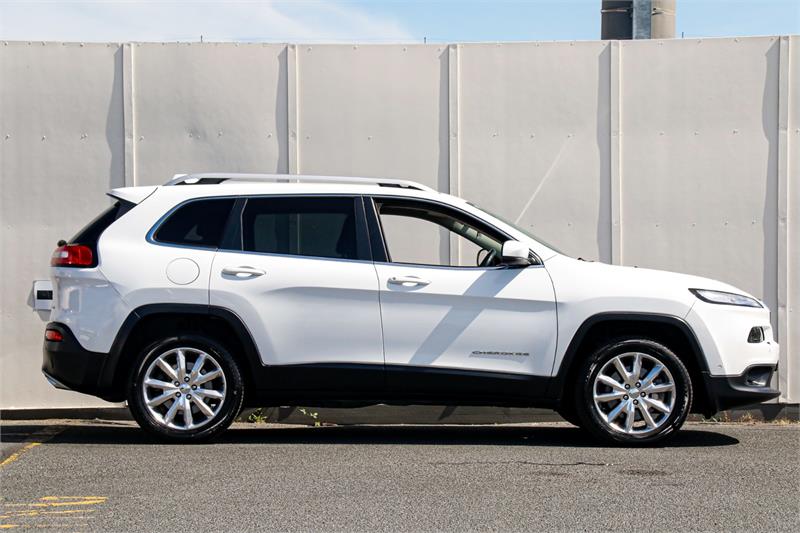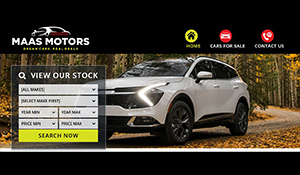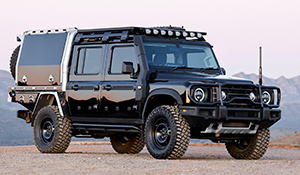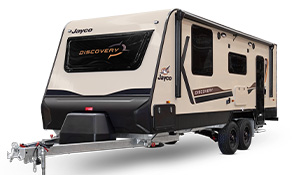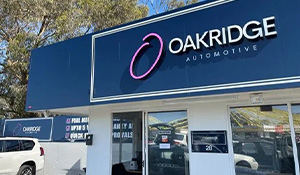ADVICE – Buying a caravan to go off-road
Alex Rae via Practical Motoring
I recently started the process of buying a caravan and the world of camper trailers and caravans is incredibly diverse (surely confusing for many), offering an overwhelming array of options.
For those of us who want to explore Australia or just get out more often, choosing the right caravan is a big decision that can cost a lot of money. But it is something you and the family might create memories in for many years. To simplify this process, here’s a simplified guide on how to choose between a camper trailer and a caravan.
![ Buying a caravan to go off-road [Click and drag to move] ](https://just-prod-assets.s3.ap-southeast-2.amazonaws.com/s3fs-public/inline-images/IMG_5823.jpg?z2bx8t_tmLK5t4BL6qK4vdd8CrClQUm1)
The Appeal of Towing Your Own Accommodation
Towing a trailer for your accommodation needs makes a lot of sense in may different scenarios. Whether you set up camp and leave your trailer behind to explore or opt for a more permanent base, both camper trailers and caravans offer distinct benefits and drawbacks. The key is understanding your needs, lifestyle, and the trade-offs involved.
![ Buying a caravan to go off-road [Click and drag to move] ](https://just-prod-assets.s3.ap-southeast-2.amazonaws.com/s3fs-public/inline-images/IMG_5454.jpg?A_CPHSaF7Qf0Kh_VSh7KGf5E1CL4Ieag)
Camper Trailers vs Caravans: The Basic Trade-Offs
The choice between a camper trailer and a caravan often comes down to balancing affordability, comfort, and practicality. Camper trailers are typically more affordable and easier to tow, making them a popular choice for those looking to embrace adventure on a budget. These trailers are lighter, which means they can be towed by mid-sized 4WDs and are more adept at handling rough, off-road tracks. However, the trade-off for their affordability and lightweight design is that they require more effort to set up and often provide less protection from the elements. Camper trailers, with their canvas sides, may not be as warm in cooler climates or as sturdy during severe weather.
On the other hand, caravans provide a level of comfort and luxury that camper trailers cannot match. With a caravan, you can enjoy amenities like built-in kitchens, bathrooms, and even washing machines. The solid structure of a caravan provides better insulation and weather protection, ensuring a comfortable stay regardless of external conditions. However, this comfort comes at a higher cost. Caravans are generally more expensive, not only to purchase but also to maintain and tow. They require a larger, more powerful vehicle for towing and are less manoeuvrable, making them less ideal for narrow or rugged tracks.
![ Buying a caravan to go off-road [Click and drag to move] ](https://just-prod-assets.s3.ap-southeast-2.amazonaws.com/s3fs-public/inline-images/IMG_5446.jpg?jP4FK0DlLu1i3olplkiLKxnTxYWM5IFt)
Factors to Consider
When deciding between a camper trailer and a caravan, there are several important factors to keep in mind. Your budget will be one of the most significant considerations. While camper trailers are often the more budget-friendly option, it’s essential to account for additional expenses such as insurance, towing accessories, and potential modifications. Caravans, with their higher price tags, may also come with greater long-term costs in terms of fuel consumption and maintenance.
Your intended use is another key factor. If your travel plans include off-road adventures and exploring the less-travelled parts of Australia, a camper trailer paired with a capable 4WD may be the better choice. These trailers are designed for rough conditions and can go places that most caravans cannot. However, if your trips are mainly on sealed roads and you prefer staying at caravan parks or enjoying road trips that don’t venture far off the beaten path, a caravan’s extra space and built-in amenities will likely enhance your experience.
Climate considerations are also essential, especially given Australia’s varied weather conditions. Camper trailers, with their canvas sides, are less effective at providing insulation and can be less comfortable in cold or rainy weather. Caravans, with their solid construction and built-in heating and cooling options, offer a more comfortable environment regardless of the temperature outside.
The time and effort involved in setting up your accommodation should not be overlooked. Camper trailers often require more hands-on setup, such as unfolding the structure, pegging it down, and ensuring it is secure. This can be time-consuming and may detract from your overall experience, especially if you frequently change locations. Caravans, on the other hand, are known for their quick and easy setup. In most cases, all you need to do is park, level the caravan, and you’re ready to enjoy your stay.
![ Buying a caravan to go off-road [Click and drag to move] ](https://just-prod-assets.s3.ap-southeast-2.amazonaws.com/s3fs-public/inline-images/IMG_5443.jpg?3S9HC0XxYtzqCAzt13D51UY9nYXmuSAg)
Off-Road Capability
While many caravans are marketed as off-road models, it’s essential to understand the limitations. Larger, heavier twin-axle caravans or those weighing more than 1500kg are generally not suited for true off-road conditions, despite the claims and the addition of features like mud tyres and reinforced chassis. These caravans can handle dirt roads and light off-road trails but may struggle with more demanding terrain. If serious off-road capability is essential for your travels, consider a lightweight, single-axle off-road caravan or a well-equipped camper trailer designed for rugged conditions.
![ Buying a caravan to go off-road [Click and drag to move] ](https://just-prod-assets.s3.ap-southeast-2.amazonaws.com/s3fs-public/inline-images/IMG_5458.jpg?Yu_PcdHsA8giLhcP9qY0Ejmjk0FjlzT8)
Research Tips and Best Practices
Before making a purchase, consider renting different types of trailers or caravans to see what works best for you. While you may have an idea of your preferences, the reality of using a particular type of accommodation can differ significantly from what you imagine. Renting gives you the chance to experience different setups and determine what aligns with your travel style.
Engaging with online communities, such as camping and caravan forums or dedicated Facebook groups, can also be an invaluable part of your research. These platforms allow you to connect with experienced travelers who can offer insights, share their stories, and provide practical advice. Attending caravan and camping expos is another great way to familiarize yourself with the latest models, speak with manufacturers, and compare features side by side.

Vetting Manufacturers and Models
Choosing a reliable manufacturer is crucial, as the caravan and camping industry in Australia is not as heavily regulated as the automotive industry. This lack of stringent regulation means there can be significant differences in quality between products. To ensure you choose a reputable manufacturer, look for companies with a long history of satisfied customers and reliable service. User groups and owner forums can be a good source of feedback on particular brands and models.
It’s wise to ask manufacturers about the specifications of their models, including tare weight, aggregate trailer mass (ATM), and other towing requirements. Request that the trailer be weighed before purchase to verify the accuracy of these specifications, as discrepancies can indicate potential design or quality issues.
Examine the warranty and after-sales support carefully. A strong warranty with comprehensive coverage can provide peace of mind and protect your investment. Be sure to ask about any exclusions and the process for handling warranty claims.
The quality of components used in the build is another key consideration. Ensure that critical parts like the brakes, suspension, and towing couplings are sourced from reputable suppliers with a presence in Australia. This can make a significant difference in the durability and safety of your trailer or caravan.
![ Buying a caravan to go off-road [Click and drag to move] ](https://just-prod-assets.s3.ap-southeast-2.amazonaws.com/s3fs-public/inline-images/IMG_5859.jpg?FM0DVlSTu9lnIwBMCPqLVU4r_FoTQiLG)
Beware of Marketing Hype
While it’s easy to be swayed by marketing terms like “independent suspension” or “off-road ready,” it’s important to focus on the overall engineering and design of the vehicle. For instance, a properly designed, weight-distributed leaf-spring suspension can often provide better towing stability than a poorly executed independent suspension system, no matter how appealing the latter may sound. Always look beyond flashy features and prioritize build quality and tested performance.

A Blend of Pure Convenience and Some Off-Road Chops
For us, who are seeking an off-road caravan that strikes a balance between quick setup, family friendly layout and durability, the New Age Caravans Expedition option in the MY24 Road Owl range struck a good balance. The Expedition model has added ground clearance on Cruise Master suspension, making it suitable for extended trips away from the bitumen.
While the MY24 Road Owl Adventurer range already has off-grid features - including XT suspension, dual 100ah AGM batteries, and a 200W solar panel - the Expedition range takes these capabilities further. Upgrades include an extended warranty, underbody protection, filament-sprayed wheel arches, and an upgrade to lithium batteries. An additional 200W solar panel ensures a reliable power supply, while bolted furniture and a composite floor enhance durability. Other features include flat profile windows and an updated decal kit, giving the caravan a sleek, modern look that is becoming popular at the moment. We looked at a variety of companies from Ezytrail to Snowy River and Jayco. There are so many options that asking plenty of questions and being comfortable with what you want, and your expectations on quality and value is crucial.
This model offers good space for up to five people (2A and 3K), featuring a queen-size bed and a triple bunk with foam mattresses. The off-road capability will be put to the test.

Final Thoughts
Choosing between a camper trailer and a caravan comes down to understanding your travel needs, budget, and expectations. Whether you opt for the minimalistic, adventurous spirit of a camper trailer or the comfort and convenience of a full-sized caravan, taking the time to research and thoroughly vet your options will ensure your investment brings you years of enjoyable memories.



